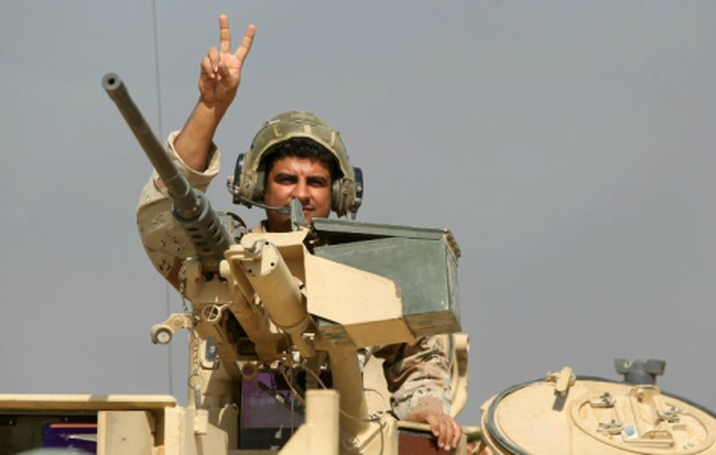Abadi did not directly reject the deployment, of which US Secretary of State John Kerry said Baghdad had been informed before the announcement, but he insisted that any operations be coordinated with the Iraqi government.
The presence of American ground forces is a contentious issue in Iraq, where the United States fought a nearly nine-year war, and it is politically expedient for Abadi to distance himself from the deployment.
"There is no need for foreign ground combat forces in Iraqi territory," Abadi said in a statement released late Tuesday in which he praised the performance of Iraqi special forces.
Defence Secretary Ashton Carter said Tuesday that the US was deploying a "specialised expeditionary targeting force" to Iraq to work alongside local forces against IS, which overran large parts of the country last year.
On Wednesday, Kerry said in Brussels that "the government of Iraq was of course briefed in advance of Secretary Carter?s announcement".
"We will continue to work very, very closely with our Iraqi partners on exactly who would be deployed, where they would be deployed, what kinds of missions people would undertake, how they would support Iraqi efforts to degrade and destroy" IS, Kerry said.
- Discussed for 'weeks' -
"I can assure you that as the plans are developed, it will be in full consultation and with the full consent of the Iraqi government," he said.
US-led coalition spokesman Colonel Steve Warren said Wednesday the new special forces deployment would number roughly 100 personnel, and that it had been discussed with Abadi.
"We've been talkin' about this with the prime minister for weeks," Warren said.
Though the new special forces troops will be based in Iraq, they will have the ability to also conduct raids across the border into northern Syria.
"These special operators will over time be able to conduct raids, free hostages, gather intelligence, and capture (IS) leaders," Carter said.
US President Barack Obama had repeatedly pledged that there would be no "boots on the ground" to fight against IS, but US special forces have already conducted raids against the jihadists in Syria and Iraq, and more are set to follow the new deployment.
The coalition has been carrying out air strikes against IS in Iraq since August 2014, and has also provided arms and training to forces in the country, but deploying forces with a specific combat mission deepens its involvement.
The coalition announced Wednesday that it carried out 15 strikes against jihadists in Iraq the day before, nine of them in the area of the IS-held city of Ramadi, which Baghdad's troops are fighting to retake.
Abadi's remarks came a day after he said that Iraq has enough forces to defeat IS, an apparent response to a proposal by US senators to triple the number of American forces in the country.
The premier faces major political pressure to not be seen as too close to Washington, especially from Iranian-backed Shiite militias and allied politicians who oppose the United States.
Source https://uk.news.yahoo.com/iraq-insists-foreign-forces-not-needed-fight-islamic-135053524.html


 RSS Feed
RSS Feed